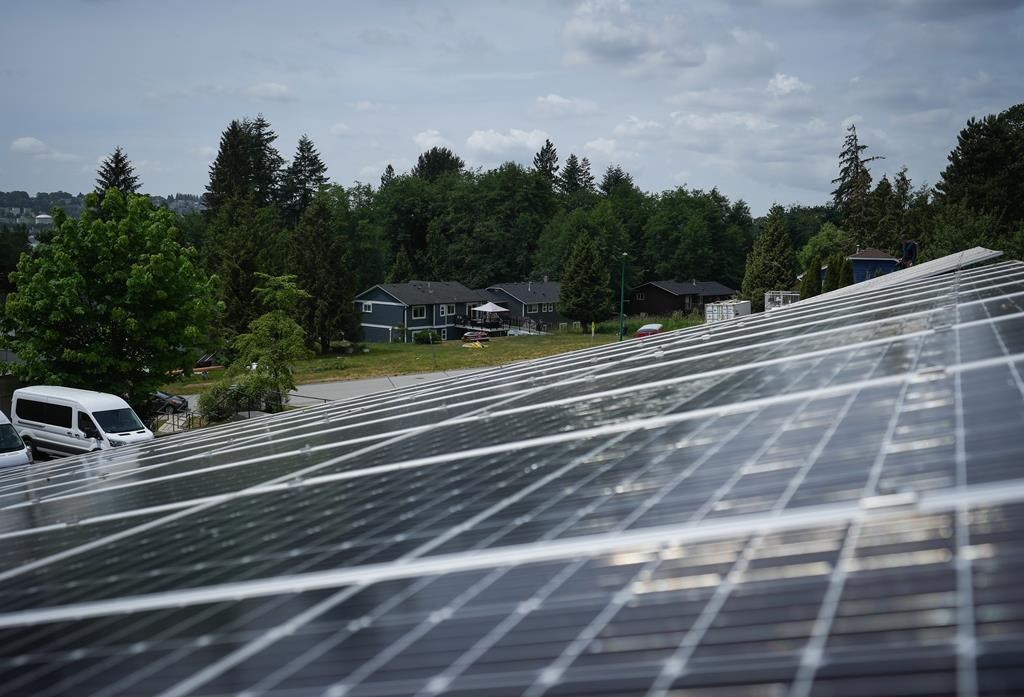
City News
Aug 9, 2023
A move by the province to place a six month pause on solar and wind projects greater than one megawatt is drawing mixed reactions from the clean energy industry and municipalities.
A move by the province to place a six month pause on solar and wind projects greater than one megawatt is drawing mixed reactions from the clean energy industry and municipalities.
The province said the reason behind the pause was because of rural concerns around scenery, projects on agricultural land, reclamation and system reliability.
Vittoria Bellissimo, president and CEO of the Canadian Renewable Energy Association calls the decision disappointing. She says last year alone around 75 per cent of renewable energy projects were in Alberta, and there are concerns the pause could lead to clean energy investors to look elsewhere.
“It is a very competitive global marketplace and we should be concerned about that. The U.S has an inflation reduction act in place that makes it very favourable conditions for renewables to build in America. In addition to that there are six jurisdictions across the country that are buying renewables or looking to buy renewables in the near future and for Alberta to not want to be the leader anymore gives all those jurisdictions the opportunity to eat our lunch,” she said.
The pause only impacts projects with applications to the Alberta Utilities Commission (AUC), not the Alberta Electric System Operator. In total. around 13 projects to date will be affected by the pause, according to the Alberta Utilities Commission, many in southern Alberta.
Peter Casurella is the executive director of the Southgrow Regional Initiative, an economic development alliance representing 30 municipalities in south-central Alberta. He says there has to be a middle ground established between clean energy investment and municipal input.
“We have been advocating for a long time for more development of renewables, helping to pave the way for that development to occur, and there are problems because development has happened faster than the update to the regulatory environment.
“The best outcome of this situation is that we get an updated regulatory and legislative environment over the next six months that allows investment approvals to proceed in a way that creates a predictable, reliable and affordable development space for investors, ” he said
Casurella adds that the municipalities he represents “have no legal standing with the AUC,” which makes having input challenging. “There are very little tools that they have that actually guide how projects are developed or where they are developed within their boundaries. They can put in all the requests that they want to the company say ‘we’d like you to do this or don’t do that this or put the project here or don’t use this piece of land but at the end of the day the relevant legislation really just restricts them to approvals from the AUC and the private land owner that they are dealing with,” Carsurella says these issues with the AUC aren’t exclusive to the clean energy sector but the entire energy sector as a whole.
Cypress County, located just outside Medicine Hat in southeast Alberta, is pleased to see the pause in place. “We’re glad to see this step taken by the province with regards to renewable energy projects,” says Cypress County Reeve Dan Hamilton. “Our landowners have shared their concerns with us and it’s important to ensure these projects are fair and well thought-out for both sides.”
“One of the most important pieces of these projects is how we deal with land reclamation. Having a long-term plan for what happens to the land is a crucial step in making these projects work for all parties. Renewable energy has the potential to be good for environment, but not if it leaves the land unusable for future generations.”
“We want to see projects that are operational and functional, and stay that way. If they’re not maintained, we want the land restored.”
But Bellissimo says a moratorium across the board is not necessary to address the concerns .
“The industry does consult, there are obviously ways we can do better, and there are ways we can standardize the process, but none of that calls for a moratorium on this . All of the deals that are made are made with private landowners and they can make contracts with clauses that they see fit.”


